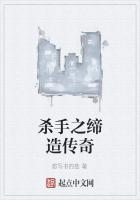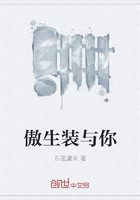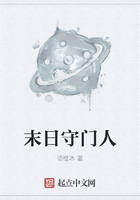Novelists are given to speaking of the theatre somewhat disdainfully.
They say that there is too much convention, that an author is too much the slave of material conditions, and is obliged to consider the taste of the crowd, whilst a book appeals to the lover of literature, who can read it by his own fireside, and to the society woman, who loses herself in its pages. As soon, though, as one of their novels has had more success than its predecessors, they do not hesitate to cut it up into slices, according to the requirements of the publishing house, so that it may go beyond the little circle of lovers of literature and society women and reach the crowd--the largest crowd possible.
George Sand never pretended to have this immense disdain for the theatre which is professed by ultra-refined writers.
She had always loved the theatre, and she bore it no grudge, although her pieces had been hissed. In those days plays that did not find favour were hissed. At present they are not hissed, either because there are no more poor plays, or because the public has seen so many bad ones that it has become philosophical, and does not take the trouble to show its displeasure. George Sand's first piece, _Cosima_, was a noted failure. About the year 1850, she turned to the theatre once more, hoping to find a new form of expression for her energy and talent. _Francois le Champi_was a great success. In January, 1851, she wrote as follows, after the performance of _Claudie: _ "A tearful success and a financial one. The house is full every day; not a ticket given away, and not even a seat for Maurice. The piece is played admirably;Bocage is magnificent. The public weeps and blows its nose, as though it were in church. I am told that never in the memory of man has there been such a first night. I was not present myself."There may be a slight exaggeration in the words "never in the memory of man," but the success was really great. _Claudie_ is still given, and I remember seeing Paul Mounet interpret the part of Remy admirably at the Odeon Theatre. As to the _Mariage de Victorine_, it figures every year on the programme of the Conservatoire competitions.
It is the typical piece for would-be _ingenues.__Francois le Champi, Claudie_ and the _Mariage de Victorine_ may be considered as the series representing George Sand's dramatic writings.
These pieces were all her own, and, in her own opinion, that was their principal merit. The dramatic author is frequently obliged to accept the collaboration of persons who know nothing of literature.
"Your characters say this," observes the manager; it is all very well, but, believe me, it will be better for him to say just the opposite.
The piece will run at least sixty nights longer." There was a manager at the Gymnase Theatre in those days named Montigny.
He was a very clever manager, and knew exactly what the characters ought to say for ****** the piece run. George Sand complained of his mania for changing every play, and she added: "Every piece that I did not change, such, for instance, as _Champi_, _Claudie_, _Victorine, Le Demon du foyer_ and _Le Pressoir_, was a success, whilst all the others were either failures or they had a very short run."[48]
[48] _Correspondance:_ To Maurice Sand, February 24, 1855.
It was in these pieces that George Sand carried out her own idea of what was required for the theatre. Her idea was very ******.
She gives it in two or three words: "I like pieces that make me cry."She adds: "I like drama better than comedy, and, like a woman, I must be infatuated by one of the characters." This character is the congenial one. The public is with him always and trembles for him, and the trembling is all the more agreeable, because the public knows perfectly well that all will end well for this character.
It can even go as far as weeping the traditional six tears, as Madame de Sevigne did for Andromaque. Tears at the theatre are all the sweeter, because they are all in vain. When, in a play, we have a congenial character who is there from the beginning to the end, the play is a success. Let us take _Cyraino de Bergerac_, for instance, which is one of the greatest successes in the history of the theatre.
Francois le Champi is eminently a congenial character, for he is a man who always sets wrong things right. We are such believers in justice and in the interference of Providence. When good, straightforward people are persecuted by fate, we always expect to see a man appear upon the scene who will be the champion of innocence, who will put evil-doers to rights, and find the proper thing to do and say in every circumstance.
Francois appears at the house of Madeleine Blanchet, who is a widow and very sad and ill. He takes her part and defends her from the results of La Severe's intrigues. He is hard on the latter, and he disdains another woman, Mariette, but both La Severe and Mariette love him, so true is it that women have a weakness for conquerors.
Francois only cares for Madeleine, though. On the stage, we like a man to be adored by all women, as this seems to us a guarantee that he will only care for one of them.
"Champi" is a word peculiar to a certain district, meaning "natural son." Dumas _fils_ wrote a play entitled _Le Fils naturel_.
The hero is also a superior man, who plays the part of Providence to the family which has refused to recognize him.
In _Claudie_, as in _Francois le Champi_, the rural setting is one of the great charms of the play. The first act is one of the most picturesque scenes on the stage. It takes place in a farmyard, the day when the reapers have finished their task, which is just as awe-inspiring as that of the sowers. A cart, drawn by oxen, enters the yard, bringing a sheaf all adorned with ribbons and flowers. The oldest of the labourers, Pere Remy, addresses a fine couplet to the sheaf of corn which has cost so much labour, but which is destined to keep life in them all.















